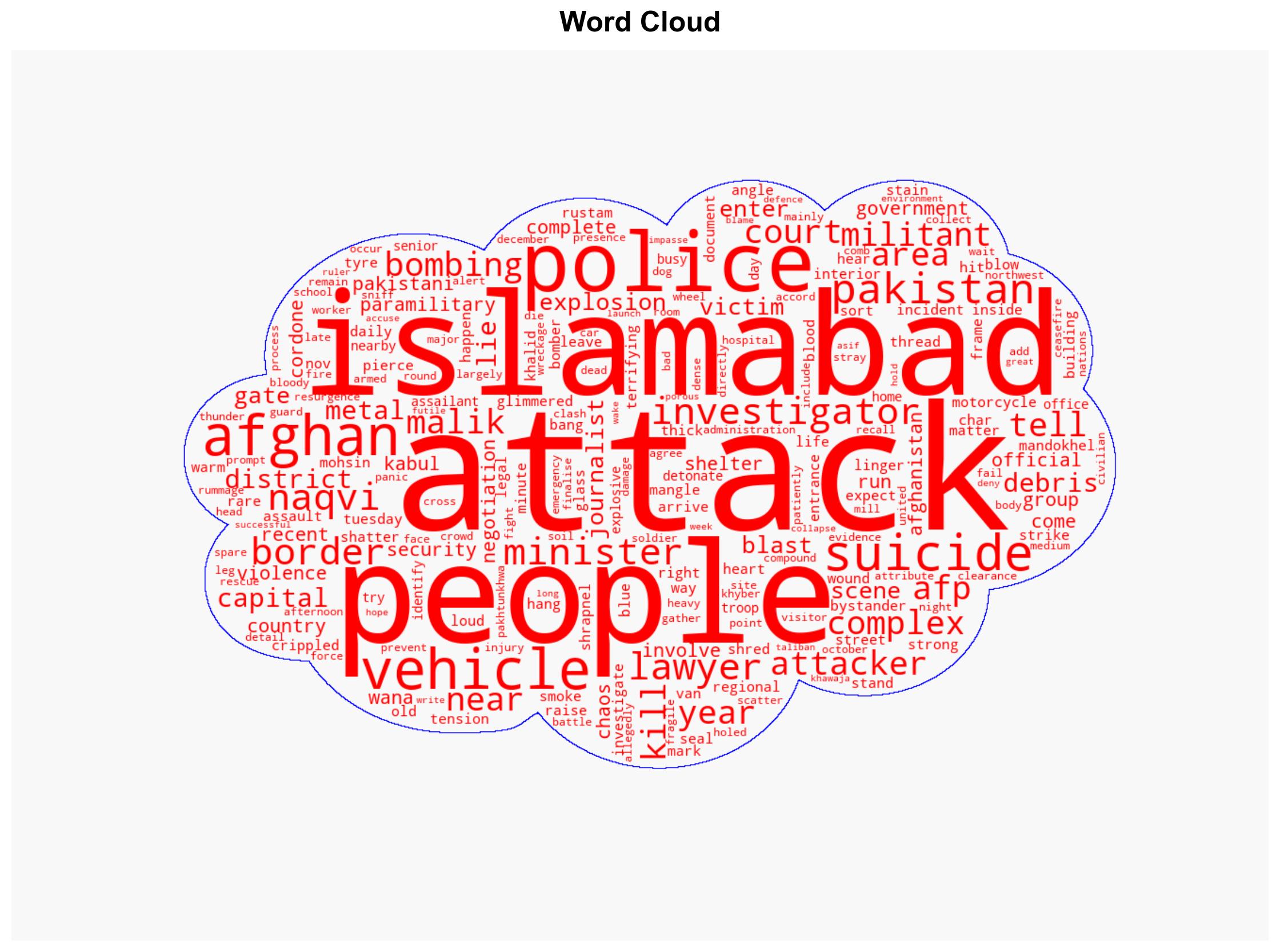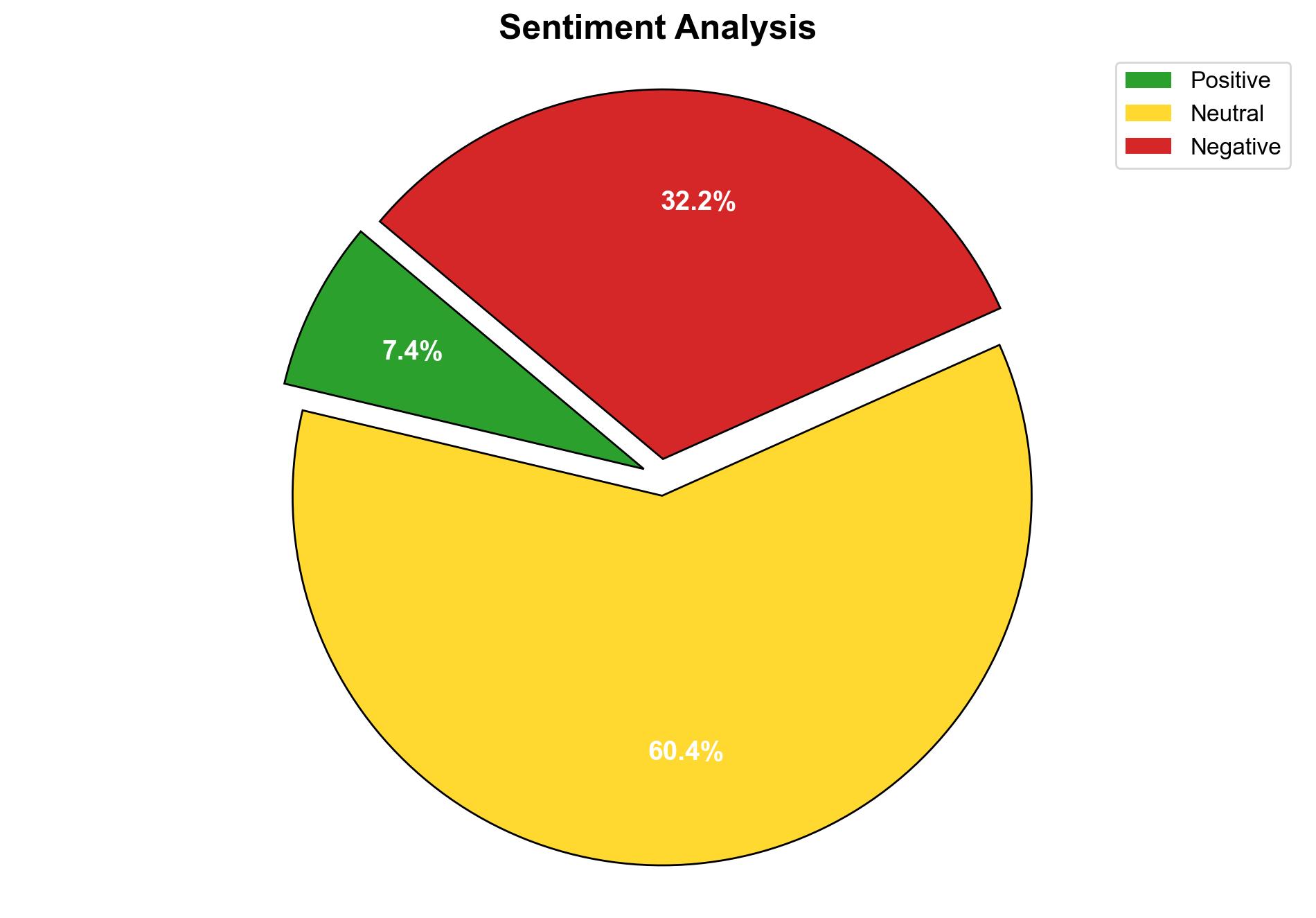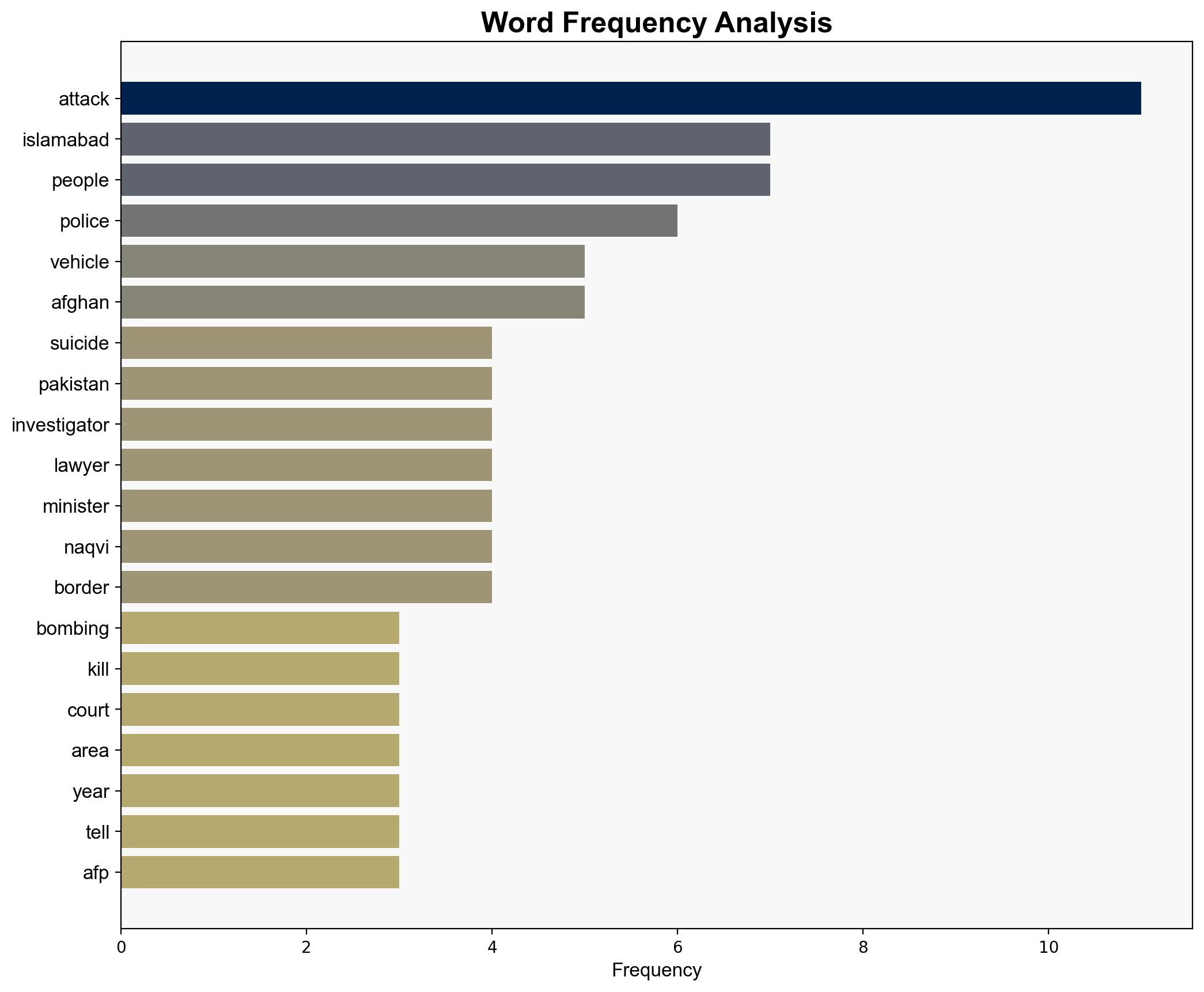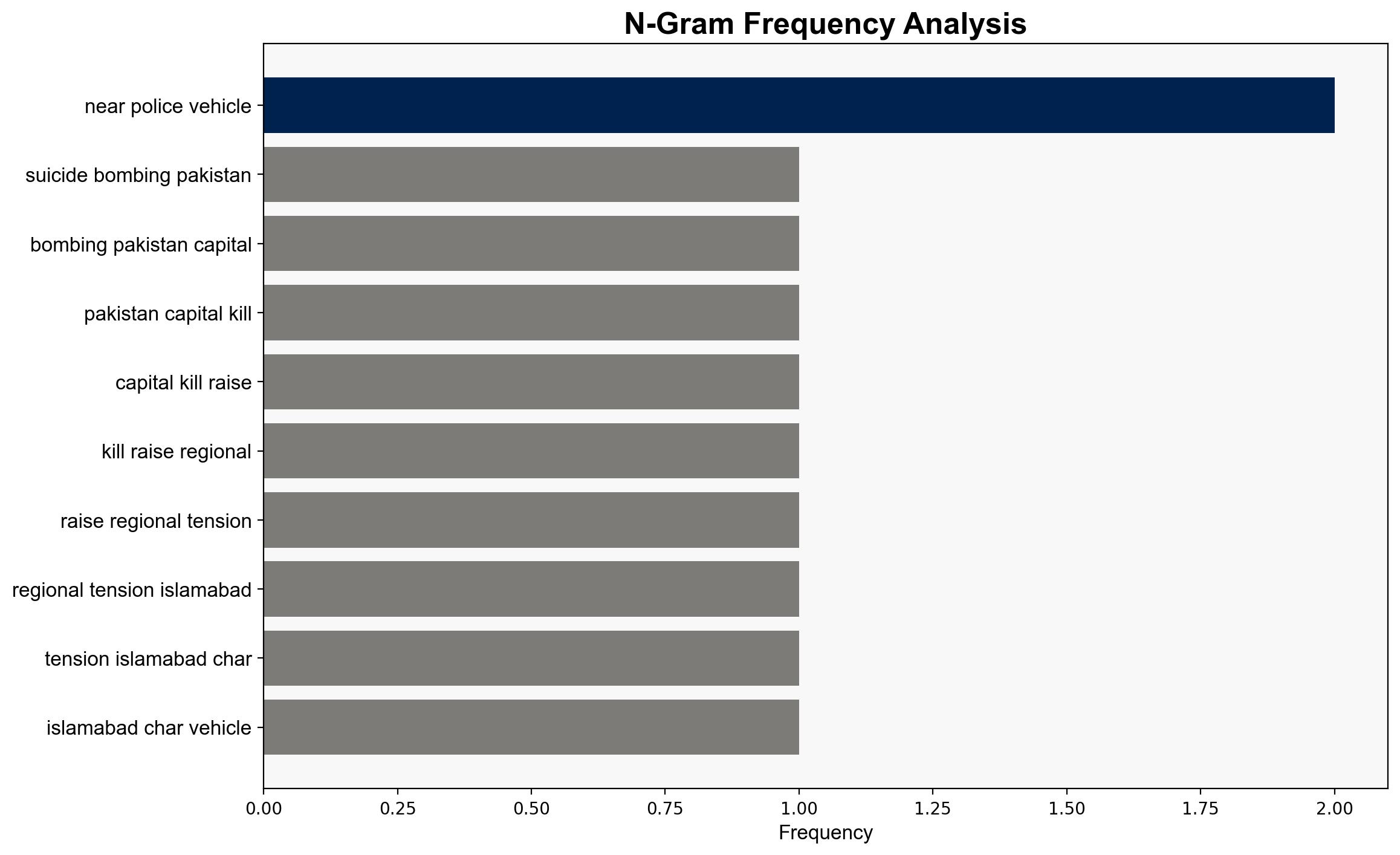Pakistan minister says Islamabad suicide bombing kills 12 – CNA
Published on: 2025-11-11
AI-powered OSINT brief from verified open sources. Automated NLP signal extraction with human verification. See our Methodology and Why WorldWideWatchers.
Intelligence Report: Pakistan minister says Islamabad suicide bombing kills 12 – CNA
1. BLUF (Bottom Line Up Front)
The suicide bombing in Islamabad, which resulted in 12 fatalities, is likely linked to regional militant groups, potentially the Pakistani Taliban, seeking to destabilize Pakistan’s government and security environment. Confidence Level: Moderate. Recommended actions include enhancing cross-border intelligence cooperation with Afghanistan and bolstering domestic security measures to prevent further attacks.
2. Competing Hypotheses
Hypothesis 1: The attack was orchestrated by the Pakistani Taliban or affiliated militant groups operating from Afghan soil, aiming to destabilize Pakistan and challenge its security forces.
Hypothesis 2: The attack was conducted by a local extremist faction within Pakistan, independent of Afghan-based groups, seeking to exploit the current political and security vulnerabilities in the country.
Assessment: Hypothesis 1 is more likely given historical patterns of cross-border militancy and recent tensions between Pakistan and Afghanistan. Hypothesis 2 cannot be entirely ruled out but lacks substantial supporting evidence.
3. Key Assumptions and Red Flags
Assumptions include the belief that the Pakistani Taliban remains active and capable of conducting large-scale attacks. A red flag is the potential bias in attributing blame to Afghan-based groups without conclusive evidence, which could be influenced by political motives. Deception indicators include potential misinformation from both Pakistani and Afghan sources, aiming to shift blame or obscure the true perpetrators.
4. Implications and Strategic Risks
The attack could exacerbate political tensions between Pakistan and Afghanistan, potentially leading to further border clashes and undermining regional stability. There is a risk of increased militant activity within Pakistan, which could strain security resources and impact economic and political stability. Additionally, the attack may influence public perception and trust in the government’s ability to maintain security.
5. Recommendations and Outlook
- Enhance intelligence-sharing mechanisms with Afghanistan to identify and neutralize cross-border threats.
- Increase security presence in key urban areas and critical infrastructure within Pakistan to deter future attacks.
- Engage in diplomatic efforts to de-escalate tensions with Afghanistan and pursue joint counter-terrorism initiatives.
- Best-case scenario: Successful collaboration with Afghanistan leads to the dismantling of key militant networks.
- Worst-case scenario: Escalation of cross-border violence and increased domestic attacks destabilize Pakistan further.
- Most-likely scenario: Continued sporadic attacks with ongoing regional tensions, requiring sustained security vigilance.
6. Key Individuals and Entities
Mohsin Naqvi (Interior Minister), Khawaja Asif (Defense Minister), Pakistani Taliban (Militant Group)
7. Thematic Tags
Regional Focus: South Asia, Pakistan-Afghanistan Relations, Counter-terrorism
Structured Analytic Techniques Applied
- Causal Layered Analysis (CLA): Analyze events across surface happenings, systems, worldviews, and myths.
- Cross-Impact Simulation: Model ripple effects across neighboring states, conflicts, or economic dependencies.
- Scenario Generation: Explore divergent futures under varying assumptions to identify plausible paths.
Explore more:
Regional Focus Briefs ·
Daily Summary ·
Methodology





